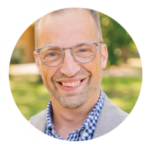Red Dress Day, also known as the National Day of Awareness for Missing and Murdered Indigenous Women and Girls and Two-Spirit People, is observed on May 5th. The day honours and brings awareness to the thousands of Indigenous women, girls and two-spirit people who have been subject to disproportionate violence in Canada. Red Dress Day was inspired by Métis artist Jaime Black’s REDress Project installation, in which she hung empty, red dresses to represent the missing and murdered women. Red dresses have become symbolic of the crisis as a result of her installation.
See at left: Missing and Murdered Indigenous Women and Girls Art installation at Seaforth Peace Park in Vancouver, BC, inspired by Métis artist Jaime Black’s REDress Project. The red dresses symbolize the missing and murdered Indigenous women and girls in Canada.



